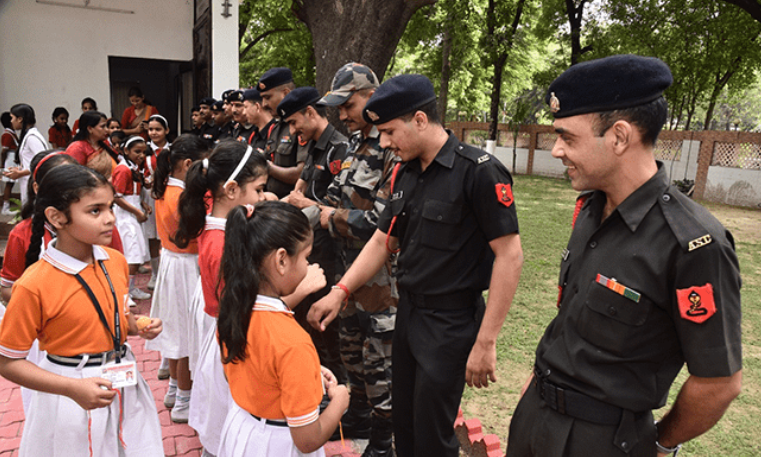
Police detain students in New Delhi who were protesting a citizenship law and violence by police on Dec. 27. (Manish Swarup/AP)
Religious freedoms in India deteriorated sharply last year as the government of Prime Minister Narendra Modi allowed “campaigns of harassment and violence” against Muslims and other religious minorities to continue, according to a U.S. watchdog group.
The U.S. Commission on International Religious Freedom, a government body that monitors conditions abroad and U.S. responses, moved India to its category of greatest concern in an annual report released Tuesday. USCIRF, as the group is called, has no power to enforce its recommendations, but the State Department is required to consider them.
The commission recommended that the State Department designate India as a “country of particular concern,” or CPC, said Nadine Maenza, its vice chair, because it “tolerated particularly severe violations of religious freedom.” The most “startling and disturbing,” she said, was India’s passage of a citizenship amendment act that fast-tracks citizenship for newcomers who belong to six religions but excludes Muslims.
“This potentially exposes millions of Muslims to detention, deportation and statelessness when the government completes its plan for a nationwide, national register,” she said.
India last received a similar rating from the watchdog in 2004, also a period of heightened concern over a Hindu nationalist government’s treatment of religious minorities, especially Muslims and Christians. In 2002, more than 1,000 people, mostly Muslims, were killed in three days of riots in the state of Gujarat.
Anurag Srivastava, the spokesman for India’s ministry of external affairs, rejected the conclusions in the report. The commission’s “biased and tendentious comments against India are not new,” he said. “On this occasion, its misrepresentation has reached new levels.”
He suggested the Indian government would keep its distance from the commission. “We regard [USCIRF] as an organization of particular concern and will treat it accordingly,” Srivastava said.
During a visit to India in February, President Trump defended Modi’s record on religious tolerance, even as violence erupted in the country over the citizenship law.
“We did talk about religious freedom, and I will say that the prime minister was incredible in what he told me,” Trump said at the time. “He wants people to have religious freedom and very strongly.”
The group said religious freedom had also “continued to deteriorate” in China, where as many as 1.8 million Muslims have been detained in internment camps.
The report cited improvements in two countries in particular — Sudan and Uzbekistan. USCIRF removed Sudan from the CPC list for the first time since the list was created in 2000 and Uzbekistan since 2005. The report praised the developments in both countries, which remained on the “special watch list.”
The report also highlighted concerns about growing anti-Semitism, particularly in Europe. It noted that 4 in 10 young European Jews are considering emigrating because of anti-Semitism and urged the Trump administration to “ensure that combating anti-Semitism is a key priority.”
The report applauded the administration for organizing events around religious freedom and issuing statements and said it had “prioritized” the topic. Maenza said Trump had raised international religious freedom “to a level it’s never been raised before.”
But the authors said the administration failed to use its powers to issue sanctions against foreign officials in cases of religious freedom violations. They noted the administration cut the number of refugees — including those fleeing religious persecution — to 18,000, the lowest in history.
Among the recommendations, the report urges the U.S. government to “exert significant pressure on Turkey to provide a timeline for its withdrawal from Syria,” while ensuring its allies neither expand control of more land, nor “otherwise abuse the rights of religious and ethnic minorities there.”
It also calls on the United States to support vulnerable religious and ethnic minorities in Syria.
Slater reported from New Delhi. Carol Morello in Washington contributed to this report.
This story first appeared in www.washingtonpost.com on April 28, 2020… more…






